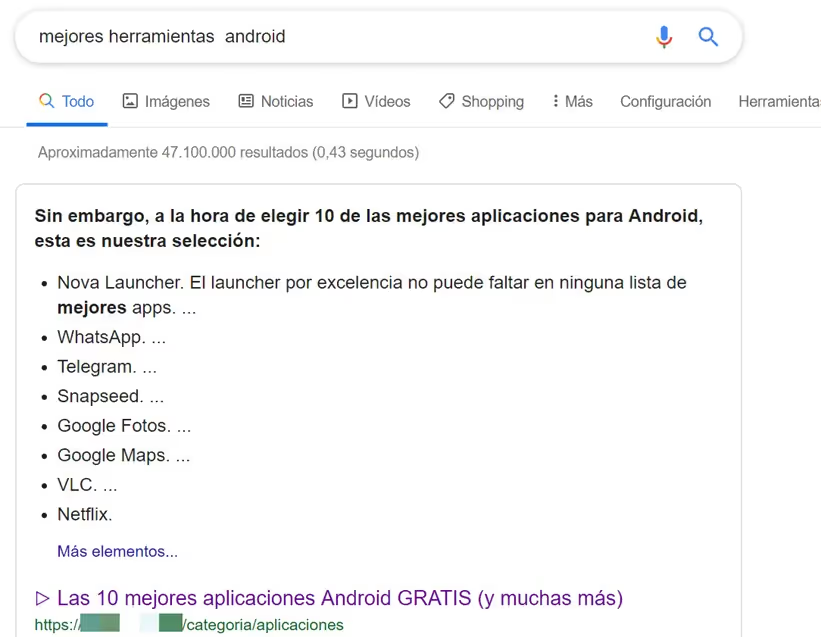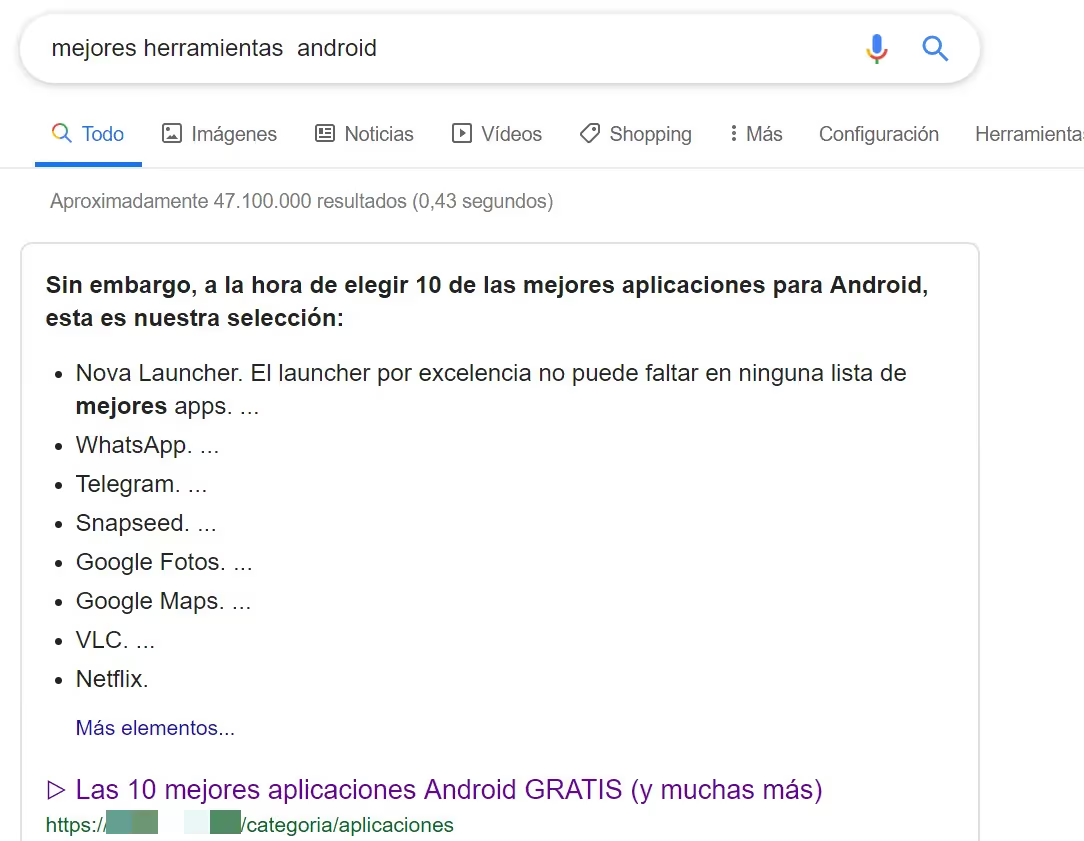Why are you losing organic clicks on Google?

It's nothing new that appearing in Google search results (SERP) is no guarantee of getting traffic to your website, despite the fact that prominent positions are achieved on the first page. Ads, Snippets, images, products or map results are often the main causes of your results not generating clicks. But these are not the only reasons. Having a lot of impressions but few clicks has become a reality for the content of many companies. The CTR (Click Through Rate) goes down and metrics are affected.
Los Novicell SEO experts we believe that Google is perhaps going too fast in the wrong direction. And the way Google operates is so subtle that the vast majority don't even notice it.
The visibility of your content on Google and the loss of organic clicks
Google has more and more control over the content that appears in the SERPs: The appearance of Rich Snippets, Featured Snippets, “Other User Questions”, among others, means that the user often gets answers without leaving the search engine. You can even search for words in a dictionary and get translations through a search engine integrated into a prominent fragment, among many other features that Google is adding.
In this article, we'll unravel the reasons why you're increasingly losing visibility in Google's organic (free) results. AND What you can do to prevent it:
- Strengthen your brand on Google.
- Intensify your SEO efforts on long-tail keywords.
- Work with Google Snippets.
Later, we will go into more detail on these points. First let's start with a question that very few people ask themselves...
Who owns the content you publish on your website?
This one is easy. To you! And at the same time not... because you allow (without charging any copyright) search engines — mainly Google — to scan and cut out snippets of your content and display it on Google.com. Well, Google shows it in the way it thinks is appropriate = the one that benefits Google's business.


Featured Snippet Example
Organic traffic and CTR
Rand Fishkin published an article on the evolution of CTR, where she explained the drop in CTR in organic traffic in mobile searches. In the article, Fishkin analyzes the evolution of organic and paid CTR between 2015 and 2018. The main conclusion he draws is that it is more difficult to achieve organic clicks in mobile searches than in desktop searches, mainly because of the efforts that Google has made to get users to either click on ads, or to stay in the search engine offering users the content they are looking for. It seems that Google has bet heavily on mobile, because on the desktop the data is not that alarming.
Who has the problem?
Does Google have a problem? Or are it the content creators (you and me) who are being harmed? At present, it is probably the latter who have the problem. Google's dominant position in the online search market and the amount of traffic they receive organically allow them to do what interests them.
But when are content creators going to rebel?
Content creators rebelling and asking Google to stop indexing their content is something that will doubtfully happen tomorrow.
But imagine it... If now the 1,000 largest websites in the world said enough to Google and removed their content from the search engine. Would Google change its policies?
What would happen if Amazon, with more than 300 million pages indexed on Google, suddenly decided that its brand is powerful and recognized enough to say goodbye to the search engine? How much would the loss of ad revenue amount to for Google?
What should you do to get the most organic traffic on your website?
Here are 3 powerful future-proof tips:
1- Make your brand so well known that users search for it — along with other keywords. Google can't (yet) remove your page from the top of results in brand searches, unless, of course, the company name matches a generic word.
It's about letting users know that your company has a brand (or several), generating interest that is transferred to Google results. This can be achieved in different ways. For example, SaaS (Software as a Service) generates strong demand for the brand. Perhaps your company would do well to create demand for interactive content, tools or software programs.
2- Intensify your SEO efforts. This way you can position yourself above your competitors without them realizing it. In the near future, when Google results are 100% managed by Google, you'll need to have the most visibility. You can use tools such as Google Search Console, SEMrush, Ahrefs and MOZ to classify click-through rates of keywords.
You can focus on Attract traffic From mid to long-tail keywords, Google doesn't care about search results, but they have value for you and your business. SEO is very important for businesses.
3- Work so that Google shows you in its so-called “Snippets”
By joining forces, you can increase the likelihood that your content will be shown in Google search results as a “snippet”. Basically, it's about finding searches within your industry that answer a question. You can use keyword tools such as “Answer The Public” to identify relevant queries that include questions. You can download them and if you see it necessary, you can analyze with Google Keyword Planner or SEMrush how many times a monthly search has been done for those words.
When you have a good number of high-volume posts on Google, you can select one of them and write an expanded article on the topic. You can also ask Novicell about what information to add to your article snippet. The next step is to monitor the results of these words and see if Google finally decides to show your article in a snippet.
The Novicell SEO team is already helping our clients adapt to new realities. SEO isn't dead. Nothing could be further from the truth... it's just gotten a little more complex, and right now, impossible to ignore.
Do you need an SEO audit?
If you need more information do not hesitate to contact us.
Cómo podemos ayudarte
Consulta los servicios con los que te ayudaremos a conseguir tus objetivos digitales.
